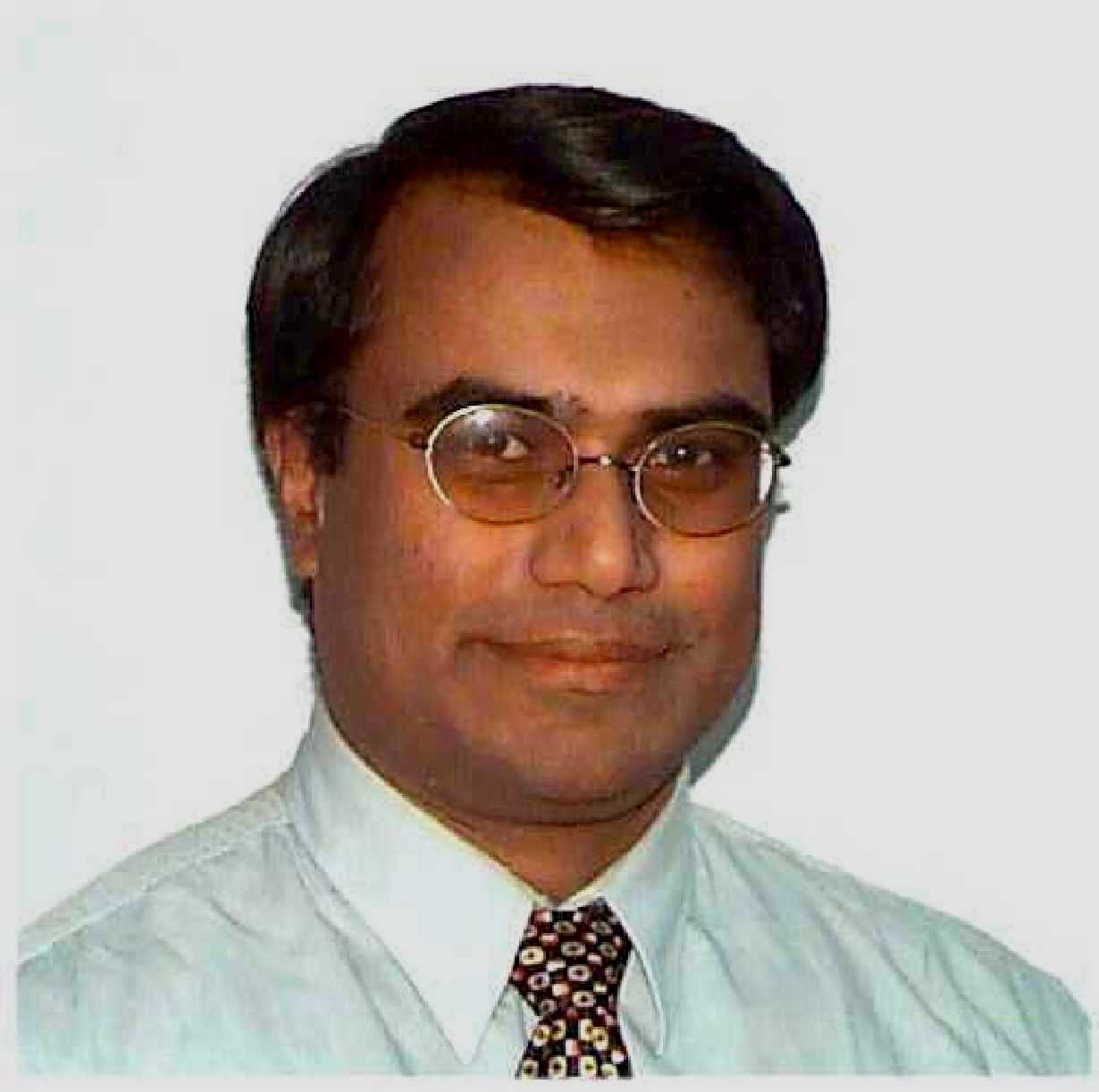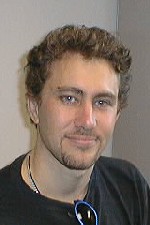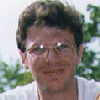| Sun 6 May |

- Speaker:
Khaled Md Khan
- Title:
Security-Aware Software Composition: A Framework
- Time:
13:00 (06/05/2007)
- Location:
Carnegie Mellon University,
Weill Cornell Medical College, Lecture Hall 1
- Abstract:
-
This seminar addresses the issue "composing security-aware systems from
the ground up". The development paradigm of coupling and decoupling of
software components promises maximum benefits of software
reusability. Despite these promises, the security concerns of third party
software components are paramount. The typical approach of 'bolted-in'
security to the system at the end of the development process creates a
problem ofdevelopment duality between developing a functional system, and
also creating a secure system. In this seminar, I am not going to
introduce another new security architecture or cryptographic technique;
rather I make an attempt to introduce a security characterization
framework that would enable systems composers to know a priori the
underlying security properties of a third-part components. Software
composers--the frontline component consumers are very much concerned about
the security impact of 'foreign' components on their application
systems. The indiscriminate 'plug & play' with third-party components
introduces liability on software composers in a sense that the candidate
components may pose serious threats to the application system. In the
existing component framework, software composers cannot test a priori the
security impact of one component on another. Driven by all these
concerns, we are motivated to develop a security-aware compositional
framework. The framework addresses how to characterize the security
properties of individual components, how to analyze the published security
properties of a system comprising several atomic components, and how to
make these characterized properties available to the composers at run
time. In this particular presentation, I will give a brief introduction on
these issues related to security-aware software composition.
- Speaker's Bio:
-
Dr. Khaled Khan is an assistant professor in computer science and
engineering at Qatar University. Prior to this, Dr Khan served the School
of Computing and IT as a senior lecturer and the Head of postgraduate
programs at the University of Western Sydney, Australia from 2000 to
2006. He also taught computer science courses at various universities in
Asia, Europe, and Africa. His research interests include security aware
software development, software components, software architecture, software
metrics, and forensics computing. He has extensive course development
experience, especially he contributed significantly to the joint IEEE
Computer Society/ACM Task Force on the "Model Curricula for Computing" as
an external reviewer and a committee member. He received a BS and an Ms
in computer science from the University of Trondheim, Norway, and a a PhD
from Monash University, Australia. He has published more than 40 refereed
papers.
|
| Sun 29 Apr. |

- Speaker:
Brett Browning
- Computer Science Deparment, Qatar campus
and the Robotics Institute
Carnegie Mellon University
- Title:
Autonomous Vision-Based Robots for Team Tasks
- Time:
13:00 (29/04/2007)
- Location:
Qatar University,
Room 180, Corridor 9, Buildings of Science, (Men Buildings)
- Abstract:
-
In this talk, I will overview the work my students and I have been
conducting towards developing autonomous robots to operate in human
environments. In particular, the focus of our work is on developing
robots to participate in human-robot and robot-robot teams for
performing tasks in predominantly indoor settings. This talk will focus
on three areas of our research; real-time vision-based perception,
effective learning techniques for robot control policies, and
multi-robot and human robot coordination. In all of these areas, our
approach has been to exploit the latest developments in the fields of
machine vision, machine learning, and agent-based research to develop
algorithms that are suitable for a real-time robot system. Throughout
the talk I will refer to two robot platforms that we have validated our
algorithms on; the Segway RMP, and the Evolution Robotics ER1
platform. We have applied these two robot systems in two different
adversarial domain settings - human-robot soccer and treasure hunts.
- Speaker's Bio:
-
Brett Browning, is a faculty member in the School of Computer Science at
Carnegie Mellon University. He divides his time between the Computer
Science Department at the Qatar campus, and the Robotics Institute
located in Pittsburgh. His prime interest is in developing autonomous
robots that are able to operate in human environments. In particular,
his research focuses on developing techniques for real-time vision-based
perception, practical machine learning techniques for robot systems, and
techniques for effective multi-robot and human-robot
coordination. Browning has been a faculty member at Carnegie Mellon
University since 2002. Prior to that he was a postdoctoral fellow at
Carnegie Mellon, and was advised by Manuela Veloso. He received his PhD
from the Computer Science and Electrical Engineering Department at the
University of Queensland, Australia in 2000. He received his Bachelor of
Electrical Engineering, and Bachelor of Science (Mathematics) from the
same institution in 1996.
|
| Sun 8 Apr. |

- Speaker:
Uvais Qidwai
- Title:
Fuzzy expert system for Defect Identification and Classification for
Non-Destructive Evaluation (NDE) of Gas/Petroleum Pipes
- Time:
13:00 (08/04/2007)
- Location:
Carnegie Mellon University,
Weill Cornell Medical College, Lecture Hall 1
- Abstract:
-
In this seminar, an expert system will be presented that is being used to
classify the defects in metallic gas/petroleum pipelines using acoustic
techniques with non-destructive evaluation (NDE) protocols. The system
maps the human experts' decision making behavior through a novel
perception-based kernel. The kernel has its roots in multidimensional
fuzzy set theory to map the relative weights given to various features;
mathematical or heuristic, and is then mapped to the decision surface to
deduce the existence of the defect. The system has a centralized database
that holds the defect information in the form of known and calculated
features. The known features and their quantitative representations have
been used to initialize the database. Then experiments have been conducted
on known defects and calculating the features using statistical and
parametric modeling techniques. The collected experimental data is also
modeled using state of the art deconvolution algorithms developed by the
presenter previously, such as H-infinity deconvolution, HOS-based
modeling, etc... In addition to these features, human expert heuristics
are also translated into relative weighted memberships transforming the
human heuristics into quantitative representations. With each feature set,
a classifier tag is associated that assigns a class number to that
defect. The classifier tag is then used to classify any new data using the
Fuzzy classifier. In the event that the classification fails, the system
decides it to be a new defect type and would require user intervention
using a MATLAB interface to update the database with this new feature set.
- Speaker's Bio:
-
Uvais Qidwai received his Ph.D. from University of Massachusetts-Dartmouth
in 2001 from the Electrical and Computer Engineering Department. He worked
at the Electrical Engineering and Computer Science Department at Tulane
University in New Orleans, USA as Assistant Professor, and in-charge of
the Robotics lab from June 2001 till June 2005. He joined the Computer
Science and Engineering Department at Qatar University in Fall 2005 as
Assistant Professor. His present interests in research include Image
Enhancement & understanding for Machine Vision applications, Fuzzy
computations, Signal Processing and Interfacing, Expert System for testing
pipelines, and intelligent algorithms for Medical Informatics. He has
participated in several Government and Industry funded projects in USA,
Saudi Arabia, and Pakistan and has published over 50 papers in reputable
Journals and Conferences.
|
| Sun 18 Mar. |

- Speaker:
Iliano Cervesato
- Title:
Breaking and Fixing Public-Key Kerberos
[slides]
- Time:
13:00 (18/03/2007)
- Location:
Qatar University,
Room 180, Corridor 9, Buildings of Science, (Men Buildings)
- Abstract:
-
We report on a man-in-the-middle attack against PKINIT, the public key
extension of the widely deployed Kerberos 5 authentication protocol.
This flaw allows an attacker to impersonate Kerberos administrative
principals (KDC) and end-servers to a client, hence breaching the
authentication guarantees of Kerberos. It also gives the attacker the
keys that the KDC would normally generate to encrypt the service requests
of this client, hence defeating confidentiality as well. The discovery
of this attack caused the IETF, the standards body overseeing Kerberos,
to change the specification of PKINIT. It also led Microsoft to release
an immediate security update for all recent Windows operating systems.
We discovered this attack as part of an ongoing systematic formal
analysis of the Kerberos protocol suite, and we have formally verified
several fixes to PKINIT that prevent our attack.
- Speaker's Bio:
-
Dr. Cervesato is an associate professor at Carnegie Mellon University in
Qatar. Prior to this, he had teaching and research appointments at
Carnegie Mellon University in Pittsburgh, Stanford University, the US
Naval Research Laboratory, Princeton University, Tulane University and
George Mason University. He is the Founder and Chief Research Scientist
of Deductive Solutions. He has performed his doctoral work at Carnegie
Mellon University.
Dr. Cervesato has 8 years of research and development experience in
various aspects of computer security, notably cryptographic protocol
analysis, attacker models, representation of cryptographic communications
and their security goals, foundations of computer security, and more.
Dr. Cervesato has also 15 years of experience in various aspects of
programming languages and computational logic, including representation
models, linear logic, type theory and concurrency. His expertise and
contributions are internationally recognized. He has published over 90
articles on the above topics. He has been the program chair or general
chair of five international scientific events.
|



